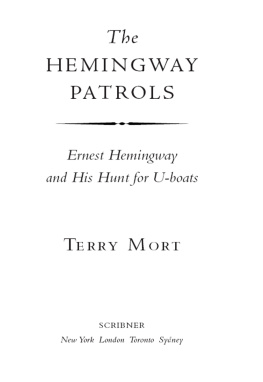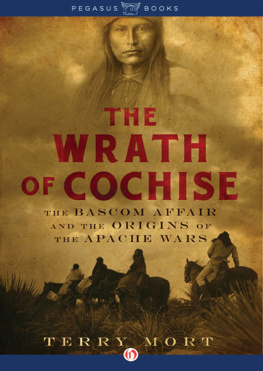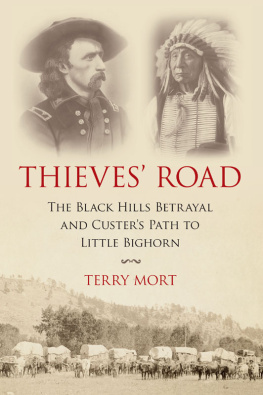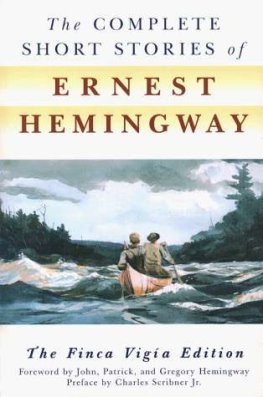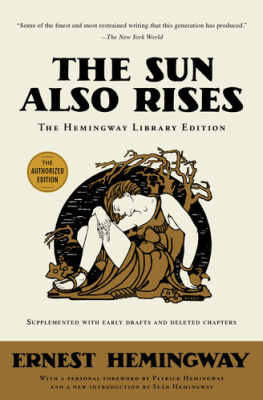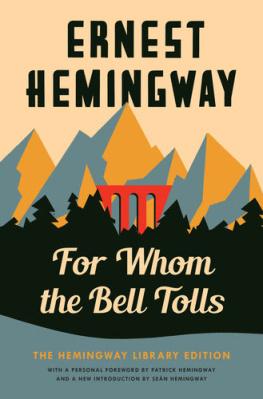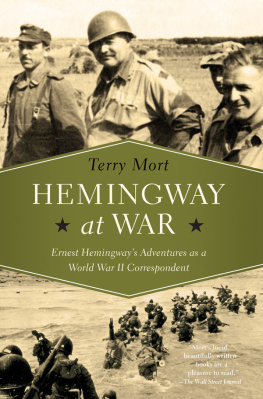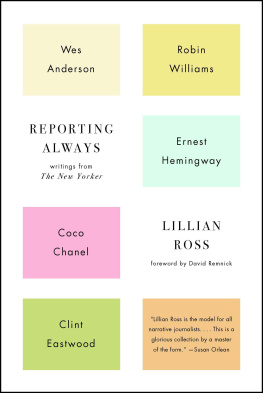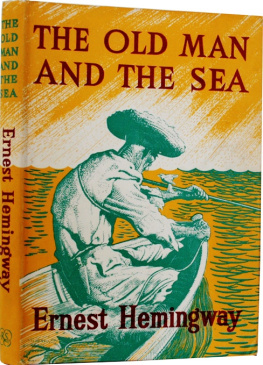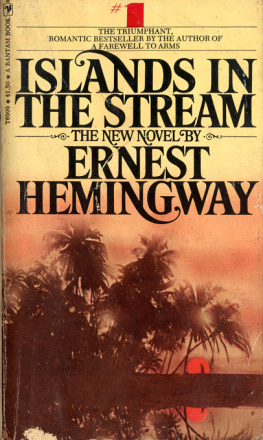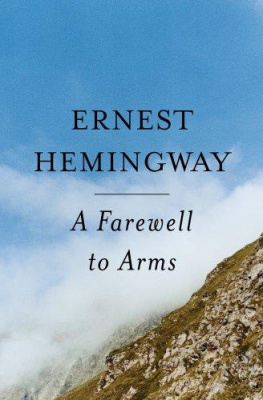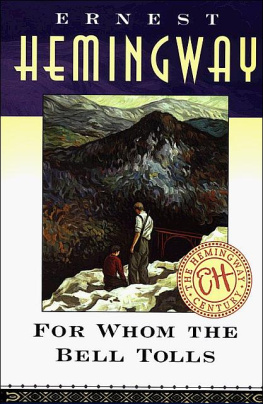
A LSO BY T ERRY M ORT
The Reasonable Art of Fly Fishing
Zane Grey on Fishing
Jack London on Adventure
Mark Twain on Travel
Showdown at Verity
The Lawless Breed
Shipment to Mexico

A Division of Simon & Schuster, Inc.
1230 Avenue of the Americas
New York, NY 10020
Copyright 2009 by Terry Mort
All rights reserved, including the right to reproduce this book or portions thereof in any form whatsoever. For information address Scribner Subsidiary Rights Department, 1230 Avenue of the Americas, New York, NY 10020.
SCRIBNER and design are registered trademarks of The Gale Group, Inc., used under license by Simon & Schuster, Inc., the publisher of this work.
The Simon & Schuster Speakers Bureau can bring authors to your live event. For more information or to book an event contact the Simon & Schuster Speakers Bureau at 1866-2483049 or visit our website at www.simonspeakers.com .
Maps copyright 2009 by Jeffrey L. Ward
Library of Congress Control Number: 2009000884
ISBN-13: 978-1-4165-9790-2
ISBN-10: 1-4165-9790-5
Permissions and photograph credits appear on backmatter.
Visit us on the Web:
http://www.SimonandSchuster.com
In memory of Sergeant E. V. Mort,
who spent countless hours flying in a PBY over
the Caribbean and South Atlantic,
looking for U-boats
The Hemingway Patrols
Contents
Introduction
E RNEST H EMINGWAY died by his own hand on July 2, 1961. He was sixty-one. If you have ever been to Ketchum, Idaho, which is where he killed himself, and especially if it was July when you were there, you understand that he must have been very ill, both physically and emotionally, to do such a thing at such a time, in so beautiful a part of the world. And so he was.
He was born on July 21, 1899, in Oak Park, Illinois, a middle-class suburb of Chicago. He was the second of six childrenfour sisters and a brother. His father was a physician, whose primary legacy seems to have been a love of the outdoors, not just hunting and fishing, but simply being in the open air. His other legacy, apparently, was a tendency toward deep, crippling depression. Hemingways mother was strong-willed with a strict set of conventional moral standards combined with artistic and musical ambitions, but no significant achievement. Hemingways father committed suicide in 1928. To suggest that the relationship between his parents was the cause of his fathers suicide is perhaps facile; but it is certainly fair, if we can believe Hemingway himself, to suggest that their relationship and his mothers imperious personality were contributing factors. Unlike many writers, Hemingway never revisited his childhood and adolescence in Oak Park in his fiction. It is as though he preferred to forget it allall except his boyhood summers at Walloon Lake near Petoskey in northern Michigan, where the family kept a summerhouse. Those were mostly good times, hunting and fishing, swimming and boating, with close friends. All his life he would try to re-create or recapture this kind of high-spirited camaraderie; all his life he would return to the sometimes exhilarating, sometimes calming environment of the woods and water to restore his physical and emotional health.
After graduating from high school (which would be the end of his formal education) Hemingway moved to Kansas City to work as a reporter on the Kansas City Star. Then in 1918 he volunteered for the Red Cross, which allowed him to wear a military-style uniform and assume the rank of lieutenant. He was sent to Italys northern front in the mountains where the Italian army was facing the Austrians and conducting a series of disastrous attacks. Initially he was an ambulance driver, but later he volunteered to supervise a Red Cross canteen located just to the rear of the Italian lines. While delivering chocolates and cigarettes to men in the front line, Hemingway was wounded by an Austrian mortar shell. Shrapnel and debris nearly destroyed his right knee, and he was sent to a military hospital in Milan to undergo surgery and rehabilitation. He was just a few days short of his nineteenth birthday. In the hospital he fell in love with his nurse, Agnes von Kurowsky, one of the most beautiful of all the women in his lifeand his first muse. She was eight years older and may not have shared his great passion, but she would become a model for Catherine Barkley in A Farewell to Arms , Hemingways 1929 novel of war and romance in the northern-Italian theater. After a while Agnes was transferred to another hospital, and Ernest returned to his home for further rehabilitation, where Agnes sent him a letter breaking off whatever remainedor ever wasof their relationship.
Hemingway spent that summer and fall in northern Michigan, allowing his knee and his emotions to heal, and in 1920 he moved to Toronto to take a temporary job as companion to the disabled son of the editor of the Toronto Daily Star. The connection would prove useful.
His next job took him to Chicago, where he wrote for the Cooperative Commonwealth, an agricultural journal. In Chicago he met Hadley Richardson, whom he would marry the following year. Ironically, perhaps, Hadley, like Agnes von Kurowsky, was also eight years older than Hemingway.
In December of 1921, he and Hadley sailed for Europe, where he would cover European political affairs for the Toronto Daily Star . The couple settled in Paris, which would become not only their base of operations for travel into Switzerland and Austria, Italy and Spain, but also the vital starting point for Hemingways literary career.
In Paris he met a variety of artists, some mere bohemian poseurs, others genuine giants of the periodJoyce and Pound and Picasso and, later, Fitzgerald. He made liberal use of Sylvia Beachs lending library called Shakespeare and Company. Beach also ran a kind of starving authors protective society, making loans of money as well as books. (It was Beach who first published Ulysses , when no other publisher wanted anything to do with it.) Hemingway also met and became friendly with Gertrude Stein, who had strong opinions on all things literary and wrote prose that was mostly impenetrable. But she was influential, knew everyone worth knowing in the arts, had a fine eye for modern painting, and ran a kind of literary salon to which she welcomed the eager Hemingway with genuine cordiality. He was an ambitious and alert student; she was well satisfied to give instruction. She and her partner, Alice B. Toklas, would later be godmothers to Hemingway and Hadleys first son, John, aka Bumby. The godfather was Eric Edward Chink Dorman-Smith (who later changed his name to Dorman-OGowan), a British professional soldier Hemingway had met during the war. The odd trio of godparents reflects some of Hemingways own interests as well as his complexity, personally and artistically. And one of the babys middle names was Nicanor, after a matador Hemingway had seen and admired the year before in Spain.
After a brief interlude during which the couple returned to Toronto, where Hemingway continued working for the Daily Star , he quit the job and they returned to Paris, where Hemingway felt they could live cheaply enough to allow him to write fiction full-time.
Years later Hemingway would return to these Paris days in his memoir, A Moveable Feast , back to the early days when we were very poor and very happy. It is quite a fine book, made all the more poignant because it was posthumously published.
They were poor in those Paris years, but not desperately so, for Hadley had a modest trust fund that covered their basic expenses. Hemingway was not producing much in the way of income. He was experiencing the usual struggles to get his stories and poetry published. He sold a few stories to German periodicals, but American magazines and publishers were not terribly interested. Fortunately, money went a long way in Paris in those days. They had enough to be happy and enough for him to go now and then to a caf where he could write and the waiters were friendly and would not care that he was only nursing a caf crme or a cognac. And there was enough money for a little travel. He and Hadley spent winters in Switzerland and Austria learning to ski at a time when there were no lifts and if you wanted to ski down the mountain, you first had to hike to the top. He would revisit those winter days in A Farewell to Arms , after Frederic Henry and Catherine Barkley declare their separate peace and flee by rowboat across Lago Maggiore to Switzerland.

